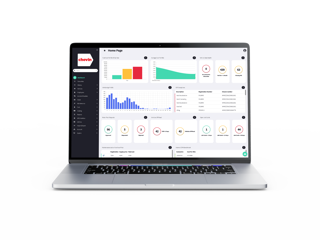Fleet operators are being recruited to trial a new fuel system cleaner that has shown improvements in fuel economy and power outputs in independent tests.
Techron is offered on petrol and diesel engine vehicles and, according to its maker Chevron, is likely to benefit vehicles part way through their fleet lifecycle, particularly those that encounter a lot of stop/start driving.
It is designed to dissolve carbon deposits in engines which can interfere with valve action and the flow and spray pattern of fuel injectors. Chevron says a single treatment should clean the deposits while repeat treatments every six months would prevent them from returning.
Chevron, which owns the Texaco brand, says sensors in most modern engine management systems can compensate for these problems, but it results in less efficient running.
Techron won’t be stocked in automotive accessory stores, but will be supplied to dealers and workshops, where technicians will decide whether a vehicle would benefit from the treatment. It is likely to add £10-15 to the cost of a service.
Fleets that use their own workshops for maintenance and repairs would be able to buy the product direct.
Chevron is already trialling the product with a large UK light commercial vehicle fleet and has commissioned an emissions testing specialist to carry out a test using cars bought at auction.
Emissions Analytics tested 20 vehicles – eight petrol and 12 diesel cars – last summer, ensuring the same environmental conditions with the air conditioning switched off.
A test route was set up to mimic a typical trade-based journey. The vehicles tested were the Ford Focus, Vauxhall Astra, BMW 320d, Honda Civic, Volkswagen Passat and Nissan Qashqai, all four-to-five years old and having travelled an average of around 10,000 miles a year.
In total, more than 480 separate emissions test cycles were carried out and around 11,000 miles covered during the assessment.
James Welchman, European marketing manager for Chevron, said: “We were keen to demonstrate Techron’s abilities because the market is populated with treatment products that don’t deliver any tangible benefits.
“These tests were designed to replicate, as closely as possible, the experience of the average car owner when using Techron.”
After Techron was used the cars were refuelled with standard supermarket fuel. The petrol cars recorded an average 2.6% uplift in power output, a CO2 reduction of 7.4% and a fuel economy improvement of 8.7%.
Average power improvement for the diesel cars was 3.4%, with a CO2 reduction of 6.4% and fuel economy improvement of 7.6%.
For a car averaging 40mpg, this would lift its efficiency to 43mpg, saving more than £200 over the course of a 20,000-mile 12-month period.
One petrol car and one diesel car posted slightly worse results after Techron was added.
Nick Molden, managing director of Emissions Analytics, said that as all the cars were purchased ‘blind’ to their histories, those that showed no improvement might have been run on high-end fuel or the driver could already be using fuel additives.
He believes the product demonstrated a more robust performance in testing than many other additives.
“There are many products on the market claiming fuel economy benefits, but not all of them stand up to rigorous testing,” he said.
Welchman told Fleet News that although it was looking for fleets to trial products with, they needed to be using vehicles whose routes and driving behaviour would make them more prone to engine deposits.
Chevron also believes that the current generation of cars, where stop/start systems are fitted to help reduce fuel use when idling, could also be more prone to a build up of deposits.
What did the tests involve?
Emissions Analytics conducted all tests on an identical route using the same driver, and in similar weather conditions at the same time of year.
The vehicle speeds were recorded via GPS and the equipment was calibrated before each test and compensated for weather, humidity and ambient pressure.
The test equipment was powered independently of the vehicle and no extraneous vehicle systems were in use during the test.
All tests were conducted on vehicles at their normal operating temperature. The total cycle time of each test was between 65 and 75 minutes and average speed in the tests was 35mph.





















Bob - 23/05/2013 16:52
Even if the figures are true, it will never work. A typical lease car is serviced at different places, so getting all the service supplier on board wont be easy. Franchise dealers would for sure refuse to use it since it may have not been tested by them. This product is really for retail and even then there are questions marks on it's true value.